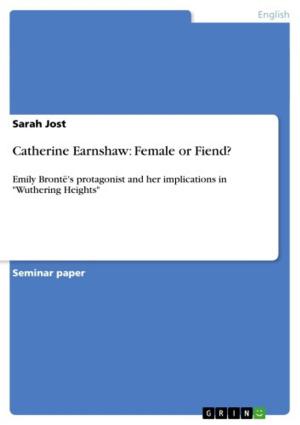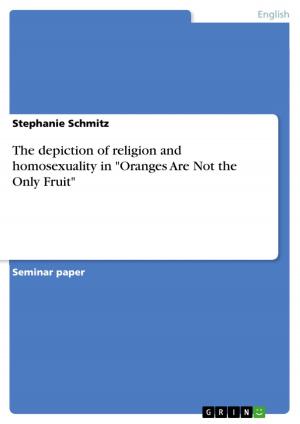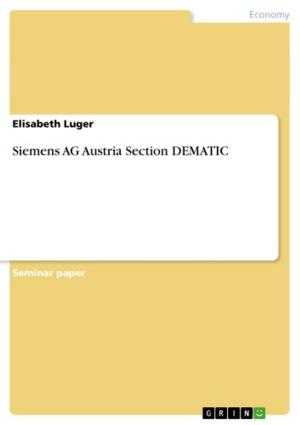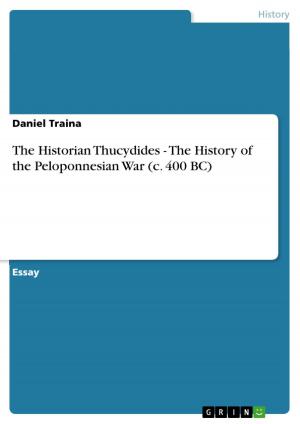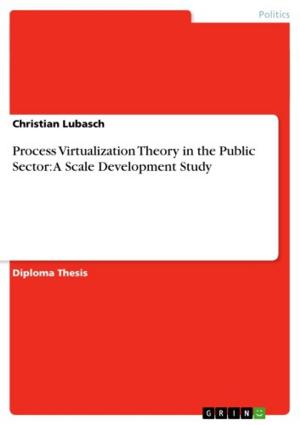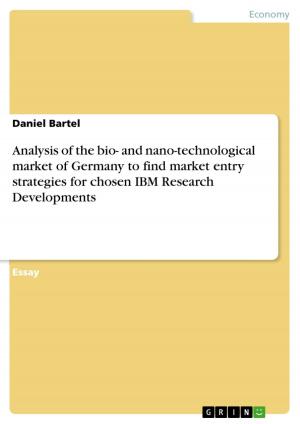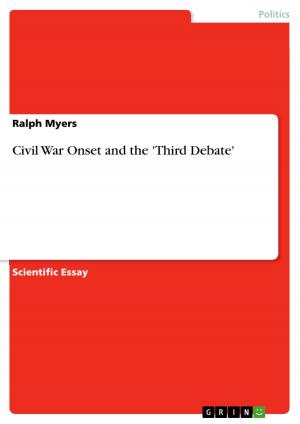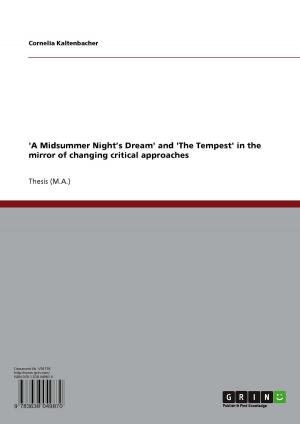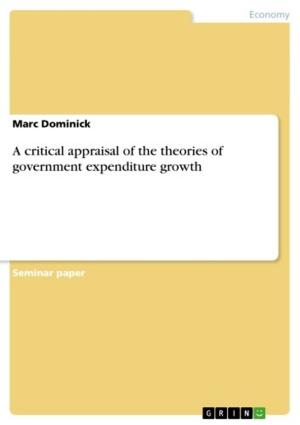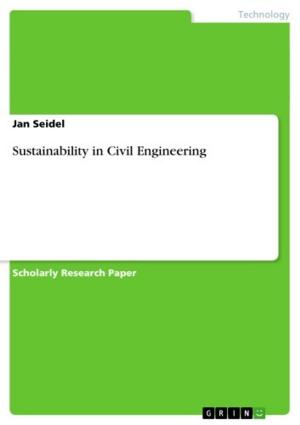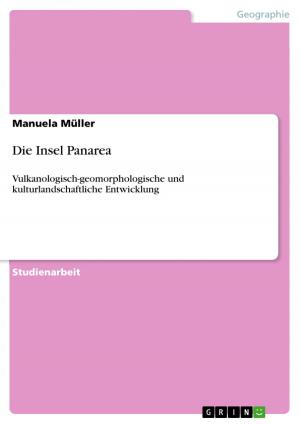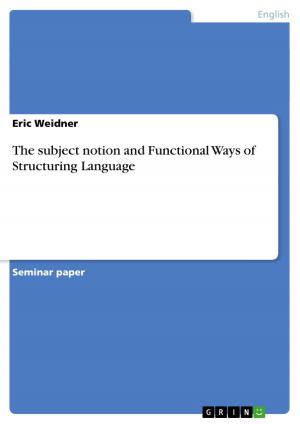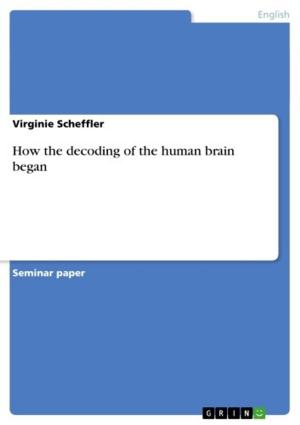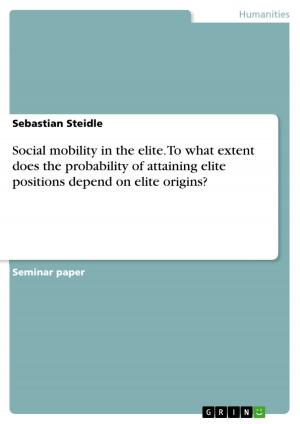How to make linguistics enjoyable?
Liguistics - basic concepts
Nonfiction, Entertainment, Drama, Anthologies| Author: | János Talabér | ISBN: | 9783640277155 |
| Publisher: | GRIN Publishing | Publication: | February 27, 2009 |
| Imprint: | GRIN Publishing | Language: | English |
| Author: | János Talabér |
| ISBN: | 9783640277155 |
| Publisher: | GRIN Publishing |
| Publication: | February 27, 2009 |
| Imprint: | GRIN Publishing |
| Language: | English |
Essay from the year 2008 in the subject American Studies - Linguistics, University of Debrecen (Regnum-M educational Co.), course: university essay workshop, language: English, abstract: How to make linguistics enjoyable? What is linguistics for me and linguistics approaches in everyday speech? I studied linguistics before, or at least my college professor did all the efforts to teach me. I have never been against it; however, it is rather hard to grab the essence of this wonderful discipline sometimes. For all this, I would give it a try. In the first Unit we come across an interesting dialog between two teenagers, actually presenting a joke of which punchline is perfectly collaborated and understood by all of them. The principle task is to collect similar dialogs and analyze them from a linguistic point of view. I do not want to repeat the linguistic analysis of the two kids exploring the joke of the chicken that crossed the road, therefore I have tried to seek similar examples. In order to work out a life-like situation, I have opted for two names; let us have Jessica and James talking to each other in the first dialog.
Short summary Teaching position: high school teacher, lecturer at Karoli Gaspar University Department of English Studies lawyer position: teacher of Health Care Law at National Health Education Center, advisor. medical position: paramedic on duty at the Charity Ambulance Dabas Longer description (by Linkedin) Janos Talaber earned his first BA degree in Theology in 1998. Following this, he graduated as a teacher of English Language (BA). Meanwhile he started to study law, especially church law, and some years after, he earned an academic degree in Church Law (JCD, PhD) and an MA in English-American Philology and Pedagogy. He has a special MA degree in Pedagogy. Also, he was trained as a Paramedic in Hungary and in the USA. He spent some academic time in the USA, in Germany and in the UK. He has visited many other countries so far. Previously, he taught medical ethics at Semmelweis Medical University and legal as well as business English at two colleges. His current activities involve teaching at a provincial high school as well as being the Head Examiner at A-Level Final Examination Board. Parallel to this, he issues several publications on medical law and church law, American Linguistics (Pedagogy) and Philosophy. Currently, he is carrying out a research on American linguistics for a PhD program and his current research aims at the neurobiological factors in teaching English as well as the situational aphasia during the oral language exams. He is also an advisor in medical law. As a devoted paramedic, he still works for the charity ambulance part-time, of which he is one of the owners. He lives in Hungary with his wife and two kids. Their pass-time activities involve hiking, playing the piano and the organ, traveling, fishing and helping out in the local parish.
Essay from the year 2008 in the subject American Studies - Linguistics, University of Debrecen (Regnum-M educational Co.), course: university essay workshop, language: English, abstract: How to make linguistics enjoyable? What is linguistics for me and linguistics approaches in everyday speech? I studied linguistics before, or at least my college professor did all the efforts to teach me. I have never been against it; however, it is rather hard to grab the essence of this wonderful discipline sometimes. For all this, I would give it a try. In the first Unit we come across an interesting dialog between two teenagers, actually presenting a joke of which punchline is perfectly collaborated and understood by all of them. The principle task is to collect similar dialogs and analyze them from a linguistic point of view. I do not want to repeat the linguistic analysis of the two kids exploring the joke of the chicken that crossed the road, therefore I have tried to seek similar examples. In order to work out a life-like situation, I have opted for two names; let us have Jessica and James talking to each other in the first dialog.
Short summary Teaching position: high school teacher, lecturer at Karoli Gaspar University Department of English Studies lawyer position: teacher of Health Care Law at National Health Education Center, advisor. medical position: paramedic on duty at the Charity Ambulance Dabas Longer description (by Linkedin) Janos Talaber earned his first BA degree in Theology in 1998. Following this, he graduated as a teacher of English Language (BA). Meanwhile he started to study law, especially church law, and some years after, he earned an academic degree in Church Law (JCD, PhD) and an MA in English-American Philology and Pedagogy. He has a special MA degree in Pedagogy. Also, he was trained as a Paramedic in Hungary and in the USA. He spent some academic time in the USA, in Germany and in the UK. He has visited many other countries so far. Previously, he taught medical ethics at Semmelweis Medical University and legal as well as business English at two colleges. His current activities involve teaching at a provincial high school as well as being the Head Examiner at A-Level Final Examination Board. Parallel to this, he issues several publications on medical law and church law, American Linguistics (Pedagogy) and Philosophy. Currently, he is carrying out a research on American linguistics for a PhD program and his current research aims at the neurobiological factors in teaching English as well as the situational aphasia during the oral language exams. He is also an advisor in medical law. As a devoted paramedic, he still works for the charity ambulance part-time, of which he is one of the owners. He lives in Hungary with his wife and two kids. Their pass-time activities involve hiking, playing the piano and the organ, traveling, fishing and helping out in the local parish.

